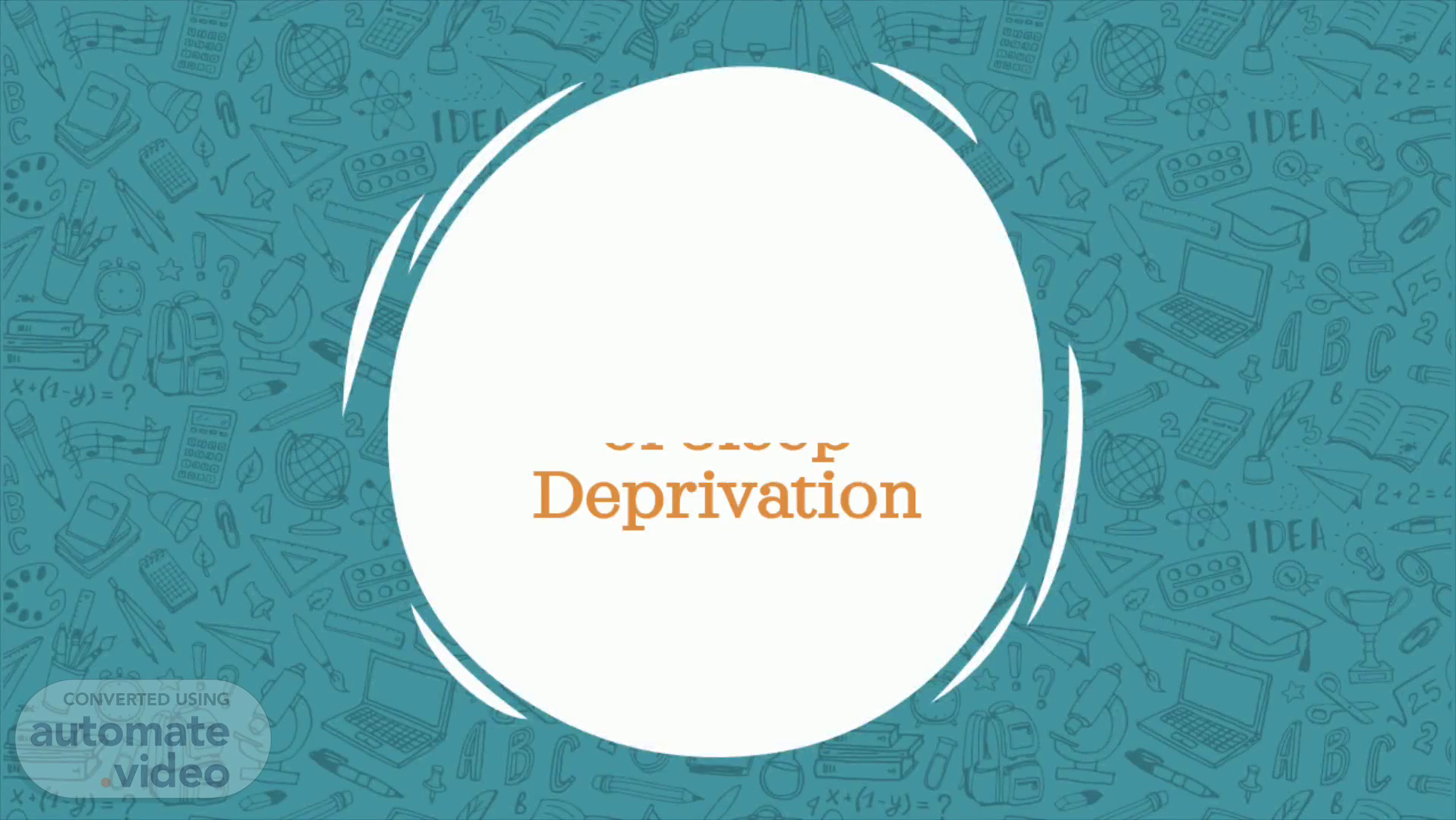
Page 1 (0s)
[Audio] The Effects of Sleep Deprivation. The Effects of Sleep Deprivation.
Page 2 (5s)
[Audio] The Important of Sleep. Resting is a fundamental necessity that gives your body and mind a chance to restore, making you feel invigorated and ready when you awaken. Adequate rest contributes to maintaining good health and warding off illnesses. Insufficient rest impairs the brain's ability to operate correctly. This can impair your abilities of the brain and nervous system and use that knowledge to reduce the burden of neurological disease. View Sources to concentrate, think clearly, and process memories..
Page 3 (41s)
[Audio] Stages of Sleep Once we fall asleep, our bodies follow a sleep cycle divided into four stages. The first three stages are known as non-rapid eye movement (NREM) sleep, and the final stage is known as rapid eye movement (REM) sleep Stage 1 NREM: This is when muscles try to relax your heart rate and eye movement begins to slow down. This usually lasts several minutes. Stage 2 NREM: This stage is the longest of the four with heart rate continuing to slow down and muscle relaxation. Eye movements will cease, and your body temperature will decrease. Stage 3 NREM: This stage is one of the important ones, this stage will determine how alert and refreshed you will feel the next day. With everything relaxed as it can be this role usually is longer at the beginning then decreases as the night goes on. REM: During REM sleep, your eyes move rapidly behind your closed eyes, your heart rate speeds up, and your breathing becomes irregular. In contrast to other stages of sleep, in which your brain waves slow down, your brain is highly active during REM sleep, and your brain waves become more variable..
Page 4 (2m 6s)
[Audio] Here you can see the effects of sleep deprivation. Not only does affect academic progress. Sleep deprivation has a big impact on your mental and over all body functions..
Page 5 (2m 21s)
[Audio] Short terms effects of sleep deprivation can appear in the form of Difficulty concentrating Decline in mood Impaired Memory Visible signs of fatigue..
Page 6 (2m 37s)
[Audio] Long-Term Sleep deprivation or fragmented sleep over long periods of time can result in Poor work performance Cognitive decline Heightened risk of dementia.
Page 7 (2m 53s)
[Audio] Sleep and College Students In college, there are endless justifications for staying up late. According to two-year research on the sleeping patterns of more than 600 college freshmen, the less sleep they get, the lower their grade-point average will be. Accumulating sleep debt plays a negative role in people's academics. The research found that every lost hour of average nightly sleep at the start of an academic term was associated with a 0.07-point drop in a student end-of –year-term GPA..
Page 8 (3m 27s)
[Audio] Having a good understanding and being honest with yourself will make you succeed in your studies. Here are some questions to ask yourself to assess your sleep patterns. What time do you go to bed? How long does it take you to fall asleep? Do you awaken during the night? How much total sleep time do you get? How much total sleep time do you need to feel rested? How long have you had this sleep pattern? What was your sleep like before you developed this problem?.
Page 9 (4m 2s)
[Audio] Takeaway. Sleep deprivation can harm a person's mental and physical health, their performance at school or work, and their overall quality of life. Also, a persistent lack of sleep can lead to complications or indicate an underlying health problem, such as sleep apnea or anxiety..
Page 10 (4m 23s)
Research Links. https://www.sleepfoundation.org/how-sleep-works/why-do-we-need-sleep Not getting enough sleep/ Washingtonpost.com https://www.sleepfoundation.org/sleep-deprivation/effects-of-sleep-deprivation https://dana.org/article/the-sleep-deprived-brain/.